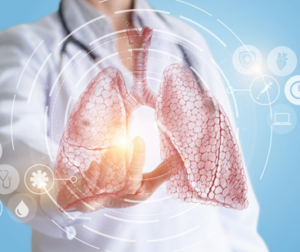
Lung cancer is the leading cause of cancer-related deaths worldwide, accounting for the highest mortality rates among both men and women. Smoking is the leading cause of lung cancer, responsible for approximately 85% of all cases.
– World Health Organisation
World Lung Cancer Day takes place annually on August 1st. It is dedicated to lung cancer awareness and the promotion of overall lung health.
The aim is to help raise awareness of the risk factors that may lead to lung cancer, such as smoking cigarettes and other harmful tobacco products.
It also highlights:
- preventative measures
- research carried out by scientists worldwide
- ways to diagnose lung cancer at its earliest stages
How we help to support lung cancer advocacy
The Global Lung Cancer Coalition is the voice of people with lung cancer worldwide.
We stand shoulder to shoulder with everyone affected by lung cancer on World Lung Cancer Day – and every day.
We offer awareness leaflets that can be downloaded to help support advocacy.
Early diagnosis and screening for lung cancer
Early diagnosis is the key to improving patient outcomes; to this end, we offer information and support that may help make the case for national screening programmes, and we have a Lung Cancer Screening factsheet you can download.
You can learn more about how healthcare systems in nations across the world respond to the challenge of lung cancer by visiting our Global eAtlas. It allows you to compare key criteria from nation to nation.
Each of the 41 member organisations that now comprise the GLCC work consistently to improve the patient experience of those living with lung cancer.
Causes of Lung Cancer
There are several risk factors that may increase a person’s chance of developing the disease.
Smoking tobacco is one of the most common risk factors. Tobacco smoke contains carcinogens that can lead to cancer. When inhaled, smoke may damage the cells that line the lungs. Repeated exposure over long periods of time can lead to respiratory ailments. Cigar smoking, pipe smoking, and exposure to second-hand smoke are also linked to increased lung cancer risks.
Exposure to certain chemicals at home or at work may enhance the risk of developing lung cancer. Radon gas is one of the most common chemicals linked to lung cancer. Inhaling high levels of radon over time can be extremely dangerous.
Exposure to asbestos can also cause lung issues. Arsenic, nickel, chromium, tar, and soot are other known toxins that are linked to lung cancer.
Small particles of carbon contained within air pollution can also damage lung tissue.
Common symptoms of lung cancer
- A new, persistent cough that may worsen over time
- Cough that produces blood
- Hoarseness or wheezing
- Shortness of breath
- Pain in the chest, back, or shoulders that worsens when coughing, laughing, or breathing
- Unexplained weight loss or sudden loss of appetite
- Feeling weak or tired
Symptoms can vary, but it’s important to take action swiftly if you notice a new or persistent symptom. Catching lung cancer in its early stages is vital for receiving an accurate diagnosis and timely treatment. Once the disease progresses and spreads to other organs, it can be more difficult to treat. Early diagnosis saves lives and improves outcomes.
Look after yourself – and your loved ones!
Taking preventative measures to keep yourself and your loved ones from developing lung cancer is extremely important. One of the most common risk factors linked to lung cancer — smoking cigarettes — is a habit that can be broken. There are now several methods of aiding those who want to quit smoking, and many nations offer effective support programmes. Our Lung Cancer and Smoking factsheet is available here (and in other languages, if you visit the Resources section on this website)
Attending routine medical check-ups and consulting your doctor is also important for maintaining overall lung health.

”It is vital that we raise awareness to the risk factors and symptoms of this disease on World Lung Cancer Day, and every day.” – Professor Matthews Peters, Chair of the GLCC
The GLCC and its member organisations promote lung and general health best-practices all year round.


